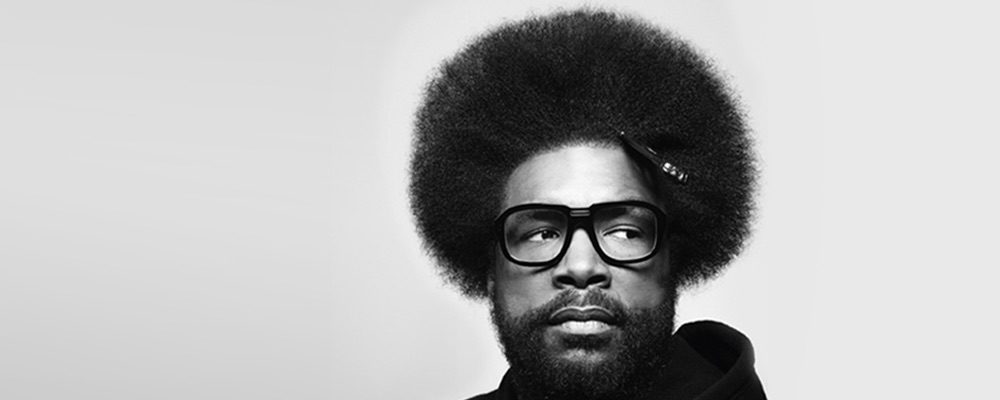Questlove Wants His Stirring ‘Summer of Soul’ Documentary to Inspire Social Consciousness
Alci Rengifo
The making of Hulu’s documentary “Summer of Soul (…Or, When the Revolution Could Not Be Televised)” began, as many risky endeavors must, by taking chances. For the highly accomplished Questlove, this marks his first feature-length work as a director, a title he can now add to his many others which include DJ, songwriter, producer, author and founding member hip-hop group the Roots. That deep understanding of music in its many facets helped Questlove craft a story out of 40 hours of previously unseen footage of the 1969 Harlem Culture Festival, held during the summer of Woodstock and the Moon landing in what is now known as Marcus Garvey Park in Harlem. It was part of Harlem’s attempt at uniting people through a celebration of Black American music, as much of the nation simmered in the aftermath of riots provoked by the assassination of Martin Luther King Jr., the struggle for civil rights and the Vietnam War. “If you’re really paying attention, the events that occurred, that drove this concert to be in the first place, are the exact same events that were happening to us in 2016, 18, 19, 20, to now,” Questlove told Entertainment Voice. “Maybe this is the nicest cautionary tale that you could watch.”
It’s a stirring piece of film, juxtaposing the crisp, intimate concert footage shot by TV director Hal Tulchin, with new interviews with attendees and some of the surviving performers, as well as iconic political moments of the times. Legendary musicians such as Nina Simone, Sly & the Family Stone, B.B. King, Gladys Knight & the Pips, David Ruffin and Stevie Wonder were among the impressive lineup, which attendees witnessed for free. “I want artists to be more responsible with their message,” said Questlove, who aims to capture in the documentary the way much of the music performed in its frames expressed the mood of a rapidly changing era. “Not every artist has to be Martin Luther King Jr.,” he said, “but just be aware that around some time, in 1993, when Charles Barkley said ‘I’m not a role model’ in that one commercial, that was almost the escape hatch that every artist started using, like ‘ah! I’m not responsible!’ But no, I think if you have a microphone, know that you have reach and influence.”
For producers David Dinerstein and Robert Fyvolent, making “Summer of Soul” began with first finding out about Tulchin and his trove of unseen footage, which back in 1969 no network would purchase for airing. They then brought the project to Questlove. “The hardest part about making it was getting it financed and finding distribution,” Dinerstein, joined by Fyvolent, told Entertainment Voice. “In a sense it’s taken 52 years now for this film to be seen. We are thankful that we were able to convince Questlove to tackle this as a first time director, he hit it out of the park. He put the footage on a loop, all 40 hours, and just watched it and watched it. We got a call where he described a cold open with Stevie Wonder drumming, and we just knew we had the right director. This footage was nearly forgotten. Hal shot it on spec, he was convinced even back then it would be important. My favorite moments in the documentary change every day. One day it’s Mahalia Jackson who is just riveting, then it’s Marilyn McCoo of the 5th Dimension watching their performance for the first time. Stevie Wonder is just awesome. It’s amazing to think he was 19!”
“One of the biggest obstacles was finishing during the pandemic,” said Fyvolent “We were in lockdown here in L.A. but still conducted story meetings and did story notes. But we kept going through it and even did some interviews during Covid.” Fyvolent also acknowledged that a documentary like “Summer of Soul” can now reach a wide audience because of the cultural shifts that have been taking place over recent years. “It’s not that no one recognized the importance of the footage, but that for the powers that be, the market just wasn’t there for this footage. But now we’re at the right place, at the right time.”
“This film stands alone in that it’s more than just a concert film,” said Dinerstein when reflecting on comparisons that are being made with classics like “Woodstock,” which go beyond being mere concert films. “Our hope is that after watching it, when people think of 1969, they no longer just think of man landing on Woodstock or the Moon landing, but of the Harlem Culture Festival. No one knew about it, but it was just as important as those events 52 years ago.”
Now a confirmed documentarian, Questlove feels the urgency to inform as well as entertain with “Summer of Soul,” which he senses is something essential amid our own, particular national predicaments. “Be informed, because we know where being misinformed is bringing us in 2021,” he said, “I want artists to be stronger with their message. Young people need to know that activism works.”
“Summer of Soul (…Or, When the Revolution Could Not Be Televised)” is streaming on Hulu.

